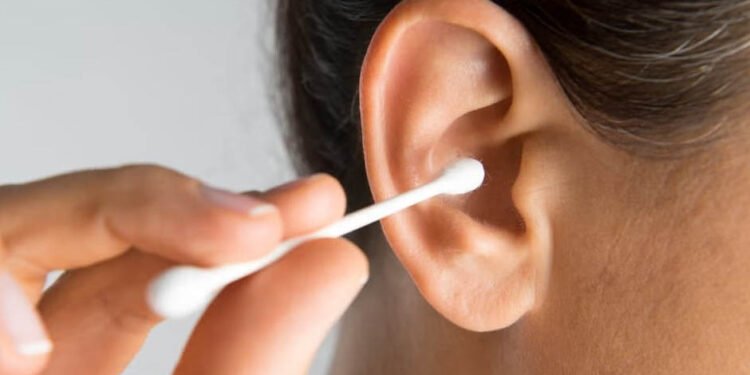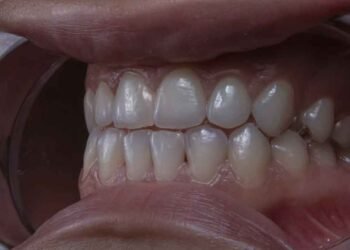Wax production in the ears is essential for the protection of delicate structures of the inner ear and maintains the normal functioning of the ear canal. Furthermore, it allows us to hear adequately and lubricate the ears. This wax cleans up on its own as well.
However, life does not always go smoothly, right? The same is the case with ear wax as it can build up in the ears and can cause several issues including maffled hearing, ear infections, ear pain, and loss of balance and optimal movements.
Therefore, we plan on discovering whether “Is it bad to have no ear wax” or if it is a good thing. So, stay with us.
Why Don’t My Ears Produce Wax?
There are rare chances that ears will produce no wax as no matter what the circumstances, ears produce wax, whether in a small or large quantity. At times, the quantity might be too small to be noticeable.
Sadly, there is no specific explanation for the minimal production of the wax. However, let us talk about some factors that contribute to the production of ear wax.
Relation of Age with the Production of Wax
The production of earwax varies from childhood to adulthood. Its consistency, thickness, and moisture are also different throughout each stage of life. In children, more wax is produced and it is softer and lighter as well.
If we talk about the other extreme of the age, wax production is greatly reduced. This is the reason why, older people often have dry, scanty, and sticky wax in their ears. Also, they feel ear irritation more often.
Role of Genetics
One of the most important factors that determine the production of wax in your ears is your genetics. Do your parents also face issues with the ear canal because of the reduced quantity of wax? If yes, you have your culprit in heredity.
If we explain it further, let us talk about the East Asian Populations including the Japanese, Koreans, and Chinese. People of these countries produce less, dry, and pale wax. In contrast, people in the USA and Europe produce an adequate amount of wax. Also, it is likely that your wax-producing glands are underdeveloped because of genetics.
Environmental Factors and Ear Wax
Environmental factors may also contribute to the increased or decreased production of earwax. These factors include,
- Dry and hot weather conditions as it can lead to dehydration
- Dehydration even in winter can result in reduced production of wax
- Smoking and Sun exposure are also two lifestyle factors that interfere with the production of wax in the ear canal
- The disturbed overall body fluid balance due to high atmospheric pressure can interfere with wax production and cleaning
Is It Bad to Have No Ear Wax in Your Ear Canal? (4 Effects)
Most people believe that earwax is not good and should be instantly removed from the ears. Moreover, it is unhealthy and dirty. That is not all, as some people have the opinion that earwax is good for our ears and should not be interfered with.
Therefore, we plan on going to the roots of these misconceptions and exploring the truth. First of all, keep in mind that ear wax is a natural procedure to protect your ears from dust, foreign bodies, bacteria, and environmental pollution.
In addition, ears remove the wax on their own when the removal is required. Therefore, if your ears do not produce enough wax, here are some effects you can come across.
1. Dryness and Itchiness
The production of earwax is necessary to keep the ears moistened and function normally. As the ears stay moistened, foreign particles are less resistant against our ears.
On the contrary, when there is no wax in the ears, our ear canal becomes dry and itchy. Consequently, you will have an uncomfortable feeling in your ears 24/7.
2. Increased Risk of Developing Infections
The pH of the earwax is in the acidic range. As you might already be aware, bacteria, fungi, parasites, and other microbes do not survive in acidic pH. Thus, it helps your ears against infections.
That is how earwax plays a significant role in maintaining the health of the ears. Therefore, lack of ear wax production results in decreased health of ears and an increased risk of infections.
3. Tinnitus or Hearing Problems
A dry ear canal or ear infection can lead to tinnitus. You will hear ringing sounds in the ears. Other than tinnitus, the debris of dead cells can also accumulate in the ears. As there is no wax for the removal of this debris, the normal pathway of sound waves is disrupted. This leads to reduced hearing.
4. Increased Risk of Ear Injury
As mentioned above, earwax keeps the ear canal moistened and soft. This reduces resistance between the ears and any foreign objects entering the ear. Additionally, it is easier for the ear canal to clean itself when it is lubricated. Therefore, decreased production of wax leads to an increase in resistance, and an increase in resistance makes the chance of ear injury many folds.
How to Maintain Ear Health? (3 Methods)
Both, overcleaning the ears and not cleaning them at all, may cause hearing problems, ear infections, and temporary or permanent damage to the ear canal. Then, what is the right way to clean the ears? How do you maintain ear health? Here are some points that can help in keeping the ears healthy.
1. Ensure Proper Cleaning Practices
Although the ears are self-cleaning, sometimes they are unable to remove the wax and our ears feel itchy. People use cotton buds commonly to remove this wax but these push them towards the eardrum rather than removing it. Thus, experts advise keeping such dangerous methods of ear cleaning away from practice.
Instead, we suggest you use a bulb syringe to irrigate the ears with normal saline or warm water. Furthermore, some other methods of ear cleaning include using,
- Oil drops
- Earwax dissolving drops such as hydrogen peroxide drops
These are instilled in the ears for 1-2 weeks to soften and remove the impacted earwax.
2. Avoid Excessive Cleaning of Earwax
Some of us might be obsessed with cleaning our ears. Excessive ear cleaning means you are removing most of the wax from your ears thus leaving the ear canal dry and irritated. This causes
- Itching
- Hearing problems
- An increased risk of infection.
Therefore, clean your ears only when you feel itching or blockage. You can also clean the ears once a month.
3. Importance of ENT Checkups and Monitoring
How will you come to know that there is something wrong with your ear canal if you are someone who does not pay much attention to the symptoms of ear issues? Well, regular ENT checkups can help you in this regard.
They allow you to know what is going on inside your ears. But, who has the time and money to get her/his ears checked every month? Not many people, right? Therefore, we recommend using an at-home camera like the Bebird Note 5 pro earwax removal kit. It is a camera-equipped handheld tool that helps in ear inspection and removal of ear wax.
The camera of the device is connected to the mobile phone through WIFI. It is small enough to easily enter the ears and you can see the live video on your phone. Bebird also facilitates its users to capture live images or videos and send them to a professional for review.
Conclusion
The rate and quantity of ear wax production varies among people. This variation arises from factors including extremes of age, background, environment, diet, lifestyle, and more. As reduced ear wax production might be multi-factorial as well, it becomes difficult to regard one factor as the culprit.
What is for sure is that you experience itching or irritation in the ear, increased infections, and risk of injuries because of no wax in your ears. In this regard, it is advised to lubricate the ears artificially using over-the-counter ear drops.
Furthermore, you can monitor the health of your ears using a Bebird ear camera and go to an ENT specialist when needed.












